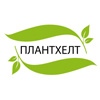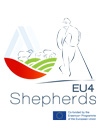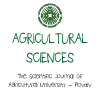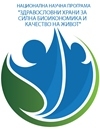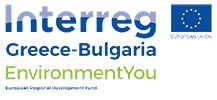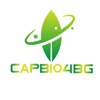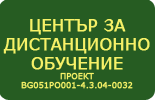World agricultural economy and agricultural trade
|
Course title: |
World agricultural economy and agricultural trade |
|
|
Course code: |
IFWAE |
|
|
ECTS: |
5 |
|
|
In-class hours |
Lectures: |
30 |
|
Laboratory work/Tutorials: |
30 |
|
|
Self-preparation hours |
Practical training: |
45 |
|
Other: |
20 |
|
|
Total hours: |
125 |
|
|
Language: |
English |
|
|
Study cycle: |
BSc, Master |
|
|
Semester: |
Winter, summer |
|
|
Faculty: |
Faculty of Economics |
|
|
Name of the lecturer(s): |
Chief Assist. Prof. Krum Hristov, PhD |
|
|
Mode of delivery: |
Face-to-face, distance learning |
|
|
Prerequisites: |
No prerequisites |
|
|
Learning outcomes of the course unit: |
The course "World agricultural economy and agricultural trade" aims to acquaint students with the historical development, current status and potential for development of agriculture in the world. The course presents the major factors determining the dynamics of resources, production and marketing of agricultural products. Particular attention is paid to the differences associated with the development of agriculture in industrialized, developing and countries with low income per capita. Тhe impact of the resources, their allocation and use for food production are analyzed. The degree of sustainability of the global agricultural economy is examined. For better absorption of the material students are required knowledge of the disciplines "Macroeconomics", "Agricultural Economics" and "Agricultural Policy". Topics of the course include three main sections: ( 1) The place of agriculture in global development, (2) Condition a supply problem in the world (3) Restructuring of agriculture in different regions. |
|
|
Course contents: |
LECTURES Topic 1. The place of agriculture in the global economy. Introduction to world agricultural development. Main features of agricultural development. Topic 2. Nature and causes of the uneven development of agriculture. Regional, economic and political aspects of the development. The role of natural factors. Topic 3. Supply issues - essence and regional dimensions. Opportunities and models for addressing food. Topic 4. The role of agriculture in economic development. Sources of growth in agriculture. Main economic theories. Topic 5. Nature and features of traditional agriculture. Importance of traditional agriculture in the development of the industry. Topic 6. Nature and patterns of agricultural development policies. Objectives and instruments of rural development policies. Topic 7. Strategies for agricultural development. Agricultural protectionism and the strategy of open markets. Topic 8. Macroeconomic policy and agricultural development. Importance of the macroeconomic environment for agricultural development. Topic 9. Allocation of resources in agriculture. Effect of quality and manner of distribution of resources on agricultural development. Topic 10. Agriculture in industrialized countries. Situation and key parameters of the agricultural sector in industrialized countries. Topic 11. Problems of agricultural development in developing countries. Partial employment and unemployment. Agricultural policy and the fight against hunger. Topic 12. Transformation of agriculture in Eastern Europe. Specificity in the ongoing agricultural policies in individual countries. Topic 13. Economic foundations and development of world trade. Basic theoretical models. Place and role of international trade in agricultural goods. Topic 14. Trade organizations and regional integration. World Trade Organization (GATT and WTO). Compliance arrangements.
EXERCISES Topic 1. Assessment of the resources of agriculture in different regions, economic organizations and countries. Assessment of the degree of supplying of food to the population in different regions, economic organizations and countries. Topic 2. Evaluation of the impact of land resources on world agricultural development. Assessment of the influence of labor resources on world agricultural development. Topic 3. Dimensions of the world food problem. Regional aspects of the problem, differences and patterns to solve. Topic 4. The regional dimension of global agricultural development. Development of agriculture in industrialized countries. Major problems of agricultural development in developing countries. Regional aspects of the development. Topic 5. Development of world production and world trade with fresh and processed vegetable products. Development of global production and global trade with fresh and processed livestock products. Topic 6. The role of FAO in the development of the world agricultural economy. Opportunities for coordination of the global community. Topic 7. The place of Bulgaria in world agricultural economy. Bulgaria’s participation in the world trade for agricultural goods. |
|
|
Recommended or required reading: |
1. FAO, “The State of Food and Agriculture 2003-2004, 2005, 2006, 2007, 2008, 2009, 2010-2011”, (www.fao.org); 2. The State of Food Insecurity in the World 1999 – 2011, (www.fao.org); 3. FAO, “World Agriculture towards 2015-2030” , (www.fao.org); 4. Mundlak Y., Larson D. F., “Agricultural Development – Issues, Evidence and Consequences”, World Bank, 1997; |
|
|
Planned learning activities and teaching methods: |
The material on the subject "World agricultural economy and agricultural trade" is taught by lectures and exercises. In the process of teaching using educational videos suitable computer programs and other videos. Extracurricular classes are conducted as individual studies of specific problems of global agricultural development. Materials and data from the websites of the European Union, FAO, World Bank and other institutions are used. |
|
|
Assessment methods and criteria: |
Final assessment is given based on the results of written examination (50%), course project paper (30%) and exercises evaluation (20%). |
|
 - Events on the occasion of the 80th anniversary of AU
- Events on the occasion of the 80th anniversary of AU
